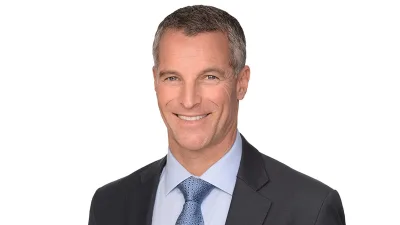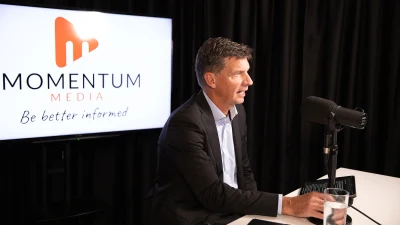Big things ahead for funds management
If the predictions ofCredit Suisse Asset Managementhead of retail services Brian Thomas andInvestment and Financial Services Association(IFSA) chief executive Richard Gilbert are anything to go by, 2004 is going to be a particularly interesting year for the funds management industry.
Consumer confidence, cost reduction exercises, consolidation, portfolio construction and, of course, the upcoming federal election were just some of the issues raised by these two industry figureheads.
According to Thomas, total industry funds under management should increase this year, and while there won’t be huge returns, people will start to invest again. “It’s not going to be a great year where assets increase at a dramatic rate but I think there will be a net increase in assets,” Thomas says.
“In a global sense the Australian asset management market is still very strong. If you compare the amount of mutual funds per household between the US and Australia, you can see there’s still a fair way to go in terms of growth within the industry.”
Gilbert also agrees 2004 will see investors returning to the market, with a degree of caution.
“It’s starting to dawn on investors that investing in the safe, low risk asset classes means low returns. Anecdotally people are moving money into higher yielding and more volatile risk classes, but with caution,” Gilbert says.
Thomas also sees this movement as a trend to watch in terms of portfolio construction.
“People are now asking questions about how you are using your skills to generate repeatable alpha. There’s a big trend to look at a core portfolio with low tracking error and then buy in skill and good alpha generation, as opposed to the traditional way of looking at an asset allocation set and then picking three managers within each category,” Thomas says.
“If you look at that alpha generation approach you start to look at different asset classes and think about taking on a lot more risk for a small part of the portfolio. I think that’s going to be a big trend.”
As a result, Thomas believes alternative asset classes will be taken more seriously, with more products emerging in this area and taking money from some of the “poor performing managers in the core asset classes”. And while international equities may suffer more than other classes, there will be outflows across the board.
However, in a year that will favour equities and alternative asset classes over bonds, Thomas says he tips Asian equities and emerging markets.
Thomas says while the Asian pension fund and retail markets are tiny by comparison even to Australia, we can expect a huge amount of growth in some of the northern Asian markets, with the region to become more relevant in solid economic forecasts as it begins to be considered a sensible place to invest again.
Thomas also says property trusts continue to look like a good asset class this year, flagging them as “pretty much fairly valued but still a good yield story”. He is cynical, however, about investors rushing into boutiques.
“Sometimes people think all good ideas are with the boutiques, and I think some lessons will be learnt by 2005 — that it’s not just boutiques that have the answers.”
Thomas predicts a fight back from the larger managers with boutique style funds and different ideas that will challenge the ‘boutique is better’ paradigm.
From an entire industry perspective, Gilbert says there will be a very strong focus on cost reduction, adding that managed fund providers must embrace e-commerce more assertively this year to achieve cost reductions. He also says many players will be chasing scale and bigger funds over single platforms, either through growth or internal mergers of funds.
Thomas, meanwhile, says fund managers will be making some big decisions about what part of the funds management business they want to be in.
“2004 will be a year where people start to ‘stick to their knitting’, so we should see a bit of movement with groups selling off parts of their business to focus on core areas as people reappraise where they want to be in the value chain,” Thomas says.
Recommended for you
In this episode of Relative Return, host Laura Dew speaks with Russel Pillemer, chief executive of Pengana Capital Group, to discuss the opportunities in global private credit in this market environment.
In this episode of Relative Return, host Laura Dew speaks with Steve Johnson, founder and CIO at Forager Funds Management, about the impact of human psychology on investing and whether fund managers can ever beat algorithms.
In this episode of Relative Return, host Laura Dew speaks with Daniel Bower, chief product officer at FinClear, and Bill Keogh, chief executive of Transact1 (a FinClear subsidiary) to discuss cash as an asset class.
In this episode of Relative Return, host Maja Garaca Djurdjevic is joined by shadow treasurer Angus Taylor to discuss the current state of the financial advice sector, the economy, the housing affordability crisis and more.












